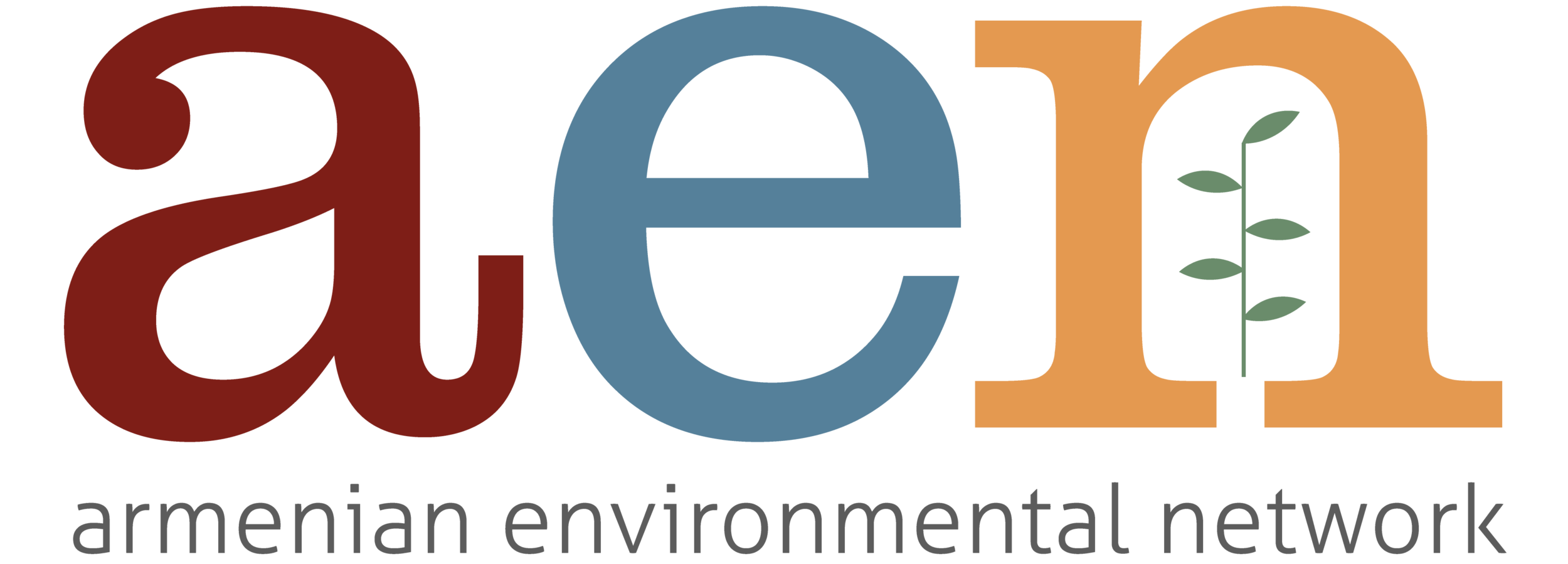Issues
Legal & Policy Development
There are already many well-written and superficially satisfactory environmental laws in Armenia. However, enforcement of these laws has proven extremely difficult. In this way, the environmental movement in Armenia shares in the larger fight for overall reform in the Armenian legal system. The Republic of Armenia has also signed many international conventions on issues relating to the environment and other aspects of democratic development. As with domestic legal enforcement problems, it is the implementation of the agreements to which Armenia is a party that has proven most difficult. However, a few pioneering projects have given the prospect for implementation new hope.
Rule of law is a critical component to a functioning democracy, and it is necessarily executed at the national level. But, without transparency in government and adherence to requirements such as public consultations for large undertakings that affect the environment (such as infrastructure development and building construction), both national and international law are reduced to nothing but empty words that help to bring in foreign investment and aid.
Many of AEN’s members have lived and/or worked in Armenia in the environmental sector. We know, first hand, the role that legal enforcement plays in the fight to preserve precious natural resources. We recognize that environmental and development work can be futile if it is done in a vacuum. Government must be held accountable; institutions must be open and transparent. Cronyism cannot influence policy; corruption must not dictate development. That is why we are focusing on promoting transparency and legal accountability in our upcoming projects, to be announced soon.
National Law
Armenia has no shortage of well written national laws protecting the environment. A listing of these laws are provided at the end of this page, and were compiled by the Transboundary Joint Secretariat for the Southern Caucasus (TSJ) of national environmental laws and bylaws. The listing contains international conventions and protocols signed by the Republic of Armenia, from 2008, as well.
The Second National Environmental Action Program of the Republic of Armenia, from 2008, provides an additional legal framework for environmental protections.
International Law
International law is a relatively recent development that has only begun to significantly impact the regulation of national law in the past century. Armenia, having become independent in 1991 after decades of Soviet rule, is generally considered an emerging democracy with a relatively stable political climate. As such, Armenia has become a signatory to several international conventions and protocols on a wide variety of topics.
After ratification of an international legal instrument, the member country is bound by the terms of the agreement. While national law may govern if it is stricter than the treaty norms, national law can also be overruled if it does not comply with the meaning set forth by the treaty. International law is therefore a dynamic area of practice, and enforcement can vary from explicit and binding decisions by an international tribunal, to “softer” mechanisms such as economic exclusion of a member country found to be in violation. Although Armenia has signed and ratified many international treaties and agreements, a common issue that is publicly raised is that the international laws–and the Armenian national laws that are adopted to comply with them–are not enforced, or are enforced very poorly.
An important, environmentally relevant, international agreement to which Armenia is a signatory is the Aarhus Convention on Access to Information, Public Participation in Decision-Making and Access to Justice in Environmental Matters(also known as simply the “Aarhus Convention”). Under this agreement, member countries agree to guarantee public access to information and justice in environmental matters. These principles are echoed in Article 33.2 of the Armenian Constitution and the Law of the Republic of Armenia on Freedom of Information. Armenia has recently also signed and ratified the Convention on International Trade in Endangered Species (CIT
A list of the United Nations conventions to which Armenia is a signatory can be found here.
If you know of an organization or report that should be listed here and is not, please Contact Us with a brief explanation of its relevance and an active URL for the organization or report
To view a broader list of active environmental organizations, see Our Partners page.
For reports and other publications relevant to this topic, see our Publications page.
